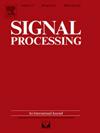Indirect Kalman filtering for robust GNSS spoofing detection in signal quality monitoring
IF 3.6
2区 工程技术
Q2 ENGINEERING, ELECTRICAL & ELECTRONIC
引用次数: 0
Abstract
Malicious spoofing poses a significant threat to the integrity of global navigation satellite system (GNSS), compromising the reliability and accuracy of measurements essential for navigation, positioning, and timing applications. Signal quality monitoring (SQM) metrics are crucial for detecting spoofing attacks by providing real-time assessments of GNSS signal integrity. However, noise interference in these metrics can degrade detection performance, leading to delayed alarms and reduced security. This paper introduces an innovative indirect Kalman filtering (IKF) approach to enhance spoofing detection by effectively mitigating the impact of noise on SQM metrics. The proposed method employs Kalman filtering to independently smooth metrics derived from the in-phase and quadrature channel outputs of multi-correlators. The non-coherent accumulation of the Kalman filter’s output state variables forms a comprehensive detection metric, while the steady-state noise variance of the Kalman filter’s output is utilized to compute the detection threshold. Theoretical analysis and experimental validation demonstrate that the IKF significantly outperforms traditional mean filtering methods in terms of detection accuracy and alarm latency. Experimental results indicate that the IKF achieves an average detection rate exceeding 80 % and reduces alarm times by approximately 20 s. This work provides a robust framework for real-time GNSS signal integrity monitoring and offers an effective solution for enhancing GNSS security against spoofing threats.
信号质量监测中GNSS欺骗检测的间接卡尔曼滤波
恶意欺骗对全球导航卫星系统(GNSS)的完整性构成重大威胁,损害了导航、定位和授时应用所必需的测量的可靠性和准确性。通过实时评估GNSS信号完整性,信号质量监测(SQM)指标对于检测欺骗攻击至关重要。然而,这些指标中的噪声干扰会降低检测性能,导致延迟警报和降低安全性。本文介绍了一种创新的间接卡尔曼滤波(IKF)方法,通过有效地减轻噪声对SQM指标的影响来增强欺骗检测。该方法采用卡尔曼滤波对多相关器的同相和正交通道输出进行独立平滑。卡尔曼滤波器输出状态变量的非相干累积形成一个综合的检测度量,而卡尔曼滤波器输出的稳态噪声方差被用来计算检测阈值。理论分析和实验验证表明,IKF在检测精度和报警延迟方面明显优于传统的均值滤波方法。实验结果表明,IKF平均检测率超过80%,报警次数减少约20 s。这项工作为实时GNSS信号完整性监测提供了一个强大的框架,并为增强GNSS抵御欺骗威胁的安全性提供了有效的解决方案。
本文章由计算机程序翻译,如有差异,请以英文原文为准。
求助全文
约1分钟内获得全文
求助全文
来源期刊

Signal Processing
工程技术-工程:电子与电气
CiteScore
9.20
自引率
9.10%
发文量
309
审稿时长
41 days
期刊介绍:
Signal Processing incorporates all aspects of the theory and practice of signal processing. It features original research work, tutorial and review articles, and accounts of practical developments. It is intended for a rapid dissemination of knowledge and experience to engineers and scientists working in the research, development or practical application of signal processing.
Subject areas covered by the journal include: Signal Theory; Stochastic Processes; Detection and Estimation; Spectral Analysis; Filtering; Signal Processing Systems; Software Developments; Image Processing; Pattern Recognition; Optical Signal Processing; Digital Signal Processing; Multi-dimensional Signal Processing; Communication Signal Processing; Biomedical Signal Processing; Geophysical and Astrophysical Signal Processing; Earth Resources Signal Processing; Acoustic and Vibration Signal Processing; Data Processing; Remote Sensing; Signal Processing Technology; Radar Signal Processing; Sonar Signal Processing; Industrial Applications; New Applications.
 求助内容:
求助内容: 应助结果提醒方式:
应助结果提醒方式:


